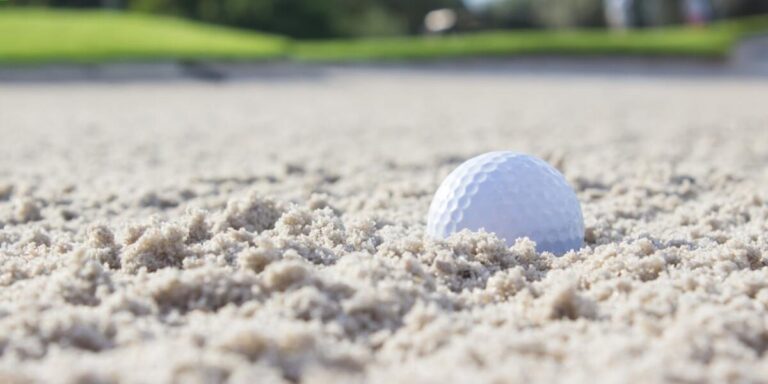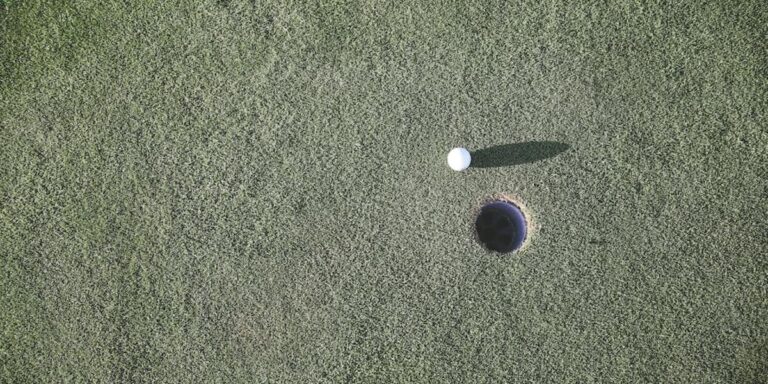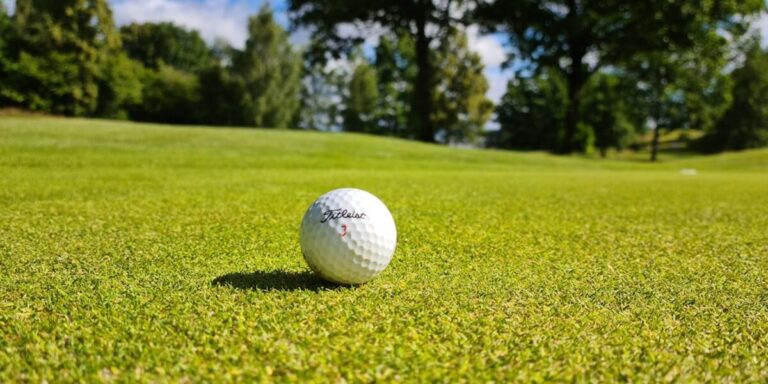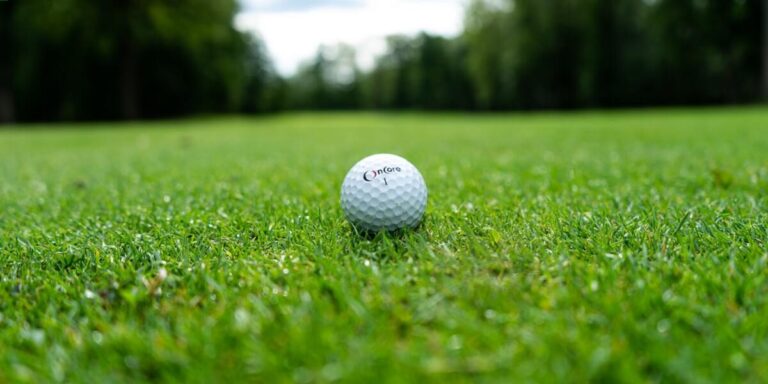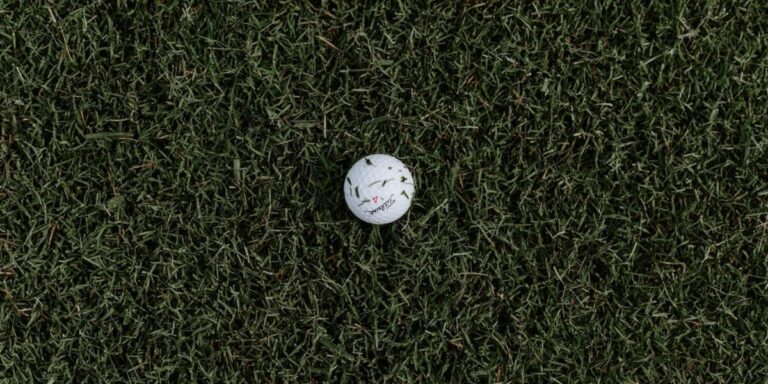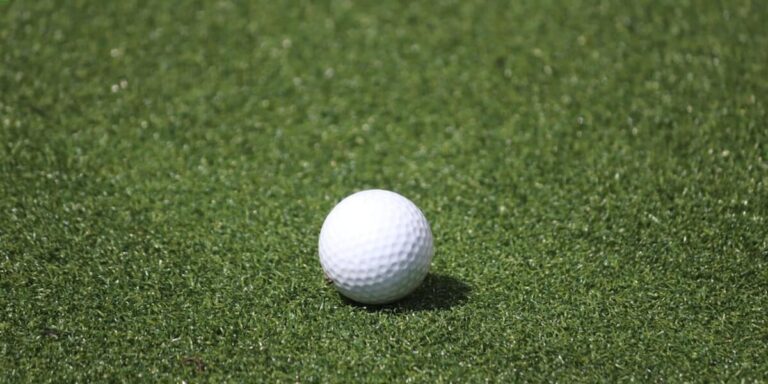Do soft golf balls make a difference?
There is a lot of debate in the golfing world about what kind of golf ball is best. There are those who swear by softer balls, and those who prefer harder ones. So which is the right choice for you? It honestly depends on your own personal preferences and playing style. But if you’re looking for the best golf ball for seniors, then you should definitely consider going with a soft ball. Here’s why:
Do softer golf balls make a difference for seniors?
There are a lot of factors that go into choosing the best golf ball for seniors. One important factor is the hardness or softness of the ball. Softer balls have some advantages for seniors.
Softer balls compress more on impact, which can help generate more distance for slower swing speeds. They also tend to spin less off the driver, which can be helpful for those who slice the ball. In addition, softerballs generally feel better when hit, and offer more control around the greens.
That said, softer golf balls aren’t necessarily better for everyone. For starters, they tend to wear out faster than harder balls. They also frequently cost more than harder options. Ultimately, it’s up to each individual senior golfer to decide what type of golf ball works best for their game
What are the best golf balls for seniors?
1. When it comes to choosing the best golf balls for seniors, there are a few things to consider. First, what is your budget? Second, what is your playing style? And third, what kind of course do you typically play on?
2. If you’re looking for the most affordable option, then choose a ball that has a lower compression rating. These balls will be easier to compress and therefore generate more distance off the tee. For example, Titleist NXT Tour or Callaway Supersoft would be good choices in this category.
3. If you want a ball that will perform well on all types of courses and have slightly longer lasting durability, then go with something in the middle range like Pro V1 from Titleist or Chrome Soft from Callaway Golf Balls . Lastly, if money isn’t an issue and you want the absolute best performance regardless of price point , go with tour-level balls such as those used by professional golfers on the PGA TOUR . Some examples include TaylorMade’s TP5x or Bridgestone’s Tour B XS
Are softer golf balls better for seniors?
Are softer golf balls better for seniors? It’s a common question among keen golfers, and one that doesn’t have a definitive answer. Ultimately, it depends on the individual golfer’s needs and preferences. However, there are some general considerations that can help guide your decision.
For seniors with reduced clubhead speed, softer golf balls may be a good option. They tend to compress more at impact, which can help increase distance. Softer golfballs also often have lower spin rates off the driver, which can be helpful for preventing wayward shots. If you find yourself losing distance or accuracy as you age, switching to a soft ball may help you regain some yardage and improve your scoring potential.
On the other hand, some seniors prefer firmer golf balls for their continued control and precision around the greens. While they may not generate quite as muchdistance as softer models, they offer greater accuracy and shot-shaping ability – two important factors for any serious golfer. If you’re struggling with your short game or finding it difficult to stop the ball close to the hole, consider trying out a harder ball next time you hit the links
Do seniours need speciality golf balls?
Do seniors need speciality golf balls? This is a question that is often debated among golfers of all ages. Some believe that seniors should use the same type of ball as everyone else, while others feel like there are certain benefits to using a ball designed specifically for seniors. So, what is the best option?
There are a few things to consider when making this decision. First, think about your own personal playing style. If you are someone who tends to lose control of their shots easily, then it might be beneficial to use a softer ball. This will help you keep your shots on target and prevent those dreaded hooks or slices. On the other hand, if you have plenty of power and control over your game, then using a standard Ball should work just fine.
The second thing to consider is the type of terrain you typically play on. If you find yourself mainly playing on tight fairways with lots of trees and hazards, then choosing a lower-compression ball can be helpful in keeping your shots straight and avoiding trouble spots. However, if most of your rounds take place on open courses with wide fairways and not many obstacles, then any type of golf ball will do just fine – it’s really up to personal preference at this point!
In general, though Seniors need not feel pressure Use specialty golf balls – unless they want too There Are definite benefits That can Be reaped by doing so such as more Control Over one’s game And Better accuracy But It Is Ultimately Up To The individual Senior golfer To decide What works best for them!
How do I choose the right golf ball for my senior game?
Choosing the right golf ball for your game can be a tough decision, especially if you’re a senior golfer. There are so many different types and brands of golf balls on the market, it can be hard to know which one is the best fit for your game. But don’t worry, we’re here to help! In this blog post, we’ll give you some tips on how to choose the best golf ball for seniors.
If you’re a senior golfer, chances are you want a golf ball that provides more distance and forgiveness. You also might prefer a softer feel when hitting the ball. With so many options out there, it can be hard to know which one is right for you. Here’s a quick breakdown of some of the most popular types of golf balls on the market:
Distance Balls: These balls are designed for maximum distance off the tee. They typically have harder cores and less spin than other types of balls, which gives them more carry and roll once they hit the ground. If you’re looking for extra yardage off the tee, distance balls are worth considering.
Forgiving Balls: Forgiving balls are designed to provide more accuracy and consistency thanks to their large size and low-compression cores . Senior Golfers who struggle with their accuracy will benefit from using forgiving golf balls as they provide straighter shots even when not struck perfectly in center . While these type s may not travel as far as some others , they offer much needed assistance where it counts around greenside areas.. Look -for brands like Titleist NXT Tour or Callaway’s SuperSoft – two excellent choices in this category.. :-))
Why do some people recommend softballs for seniors golfer’s ?
Some people recommend softballs for seniors golfers because they are easier to hit and result in straighter, more consistent shots. Softballs also tend to have lower spin rates, which can be helpful for seniors who want to avoid hooks or slices. Additionally, softer balls often compress better on impact, making them more forgiving on miss-hits.
What is the difference between hard and soft golfballs?
There are two main types of golf balls: hard and soft. Hard golf balls are designed for players with a high swing speed, while soft golf balls are ideal for players with a slower swing speed. Each type of ball has its own benefits and drawbacks, so it’s important to choose the right one for your game.
Hard golf balls are typically made from harder materials, such as synthetic rubber or urethane. These materials help give the ball a higher coefficient of restitution (COR), which means that it will rebound off the clubface with more energy. This results in greater distance but less accuracy. Harder materials also tend to spin less than softer ones, making it easier to control your shot trajectory. If you have a fast swing speed and want maximum distance, then a hard golf ball is the way to go.
Soft golf balls, on the other hand, are usually made from softer materials like balata or nitrile-butadiene rubber (NBR). These substances compress more upon impact, resulting in less distance but more accuracy. Soft material also spins more than hard material, giving you greater control over your shots. If you have a slow swing speed and want pinpoint accuracy, then softballs are probably your best bet.
Frequently Asked Question
-
Do soft golf balls make a difference?
-
What age is considered senior in golf?
-
What is the average golf handicap for a 75 year old man?
-
What tees Should a 75 year old man play?
-
What is a good swing weight for a senior golfer?
-
How far should a senior golfer hit a driver?
-
What is a good swing speed for a senior golfer?
-
What is the rule of 85 in golf?
-
Does a soft golf ball go further?
-
Why do golfers lose distance with age?
-
Will a senior shaft give me more distance?
-
Is golf good exercise for seniors?
Softer golf balls are recommended for the vast majority of players. These balls are better for slower swing speeds as they have less spin, travel further offline, and launch higher. Although there are some disadvantages to this ball’s control on short-game approach shots, the benefits of long-term play far outweigh these limitations.
Senior tournaments in men’s golf are open to players over 50. The lower age limit for other sports varies but it is typically 45-50, 55, or 50.
Your handicap is between 1 and 2 if you shoot 70-75. Your handicap is between 3 and 5. Your handicap is between 6 to 9. Your handicap is between 10-13 if you shoot between 85 and 91.
Today, many golf clubs still follow an age-rule for forward tee use. This is especially true on competition days. For most, 70 was considered the minimum age. Senior golf societies often have a 55-year age limit and members usually play on the forward tee.
Senior drivers should aim for swing weights between C-8 to D-1. The shaft should weigh 55-60g. Senior drivers should aim for loft of 12-13 degrees, or more. To prevent cutting, an offset driver head or hook should be considered.
Senior Tour players average 106 mph swing a driver and hit it 274 yards. The average LPGA Tour Pro hits a driver 246 yards faster than the average Senior Tour player.
How fast does a senior player swing? My TPI found that the average swing speed of 50-60-year olds is 72 to 86 miles per hour. It’s between 71% and 79 mph for golfers over 60.
This simple equation will determine which tee spot you should use. According to the 85 golf rule, if you have a handicap greater than 85 or less then the senior tees should be used.
Are Softer golf balls more efficient? Soft low compression golf balls travel farther when hitting your driver or irons. Your wedges should allow you to travel the same distance with your soft or firm golf balls.
The average distance a golfer under 30 hits the ball is 238 yards. This means that the distance decreases approximately 10 yards per ten years. As you get older, your swing speed decreases and this is why yardage drops.
A longer shaft can give seniors more range. You will get greater distance with your driver if you have a longer shaft.
Golfers can get a lot of exercise from the challenge of hitting a small ball over a large field. This is a great way to improve your cardiovascular health as well as increase your energy level. Although many older adults feel they’re too old for new hobbies it is possible to be very beneficial for both their mental and physical health.
Conclusion
There’s a lot of debate on whether or not soft golf balls make a difference, but ultimately it comes down to personal preference. If you’re looking for the best golf balls for seniors, do your research and read reviews before purchasing online. Trusted links and reviews can be found on our website.


